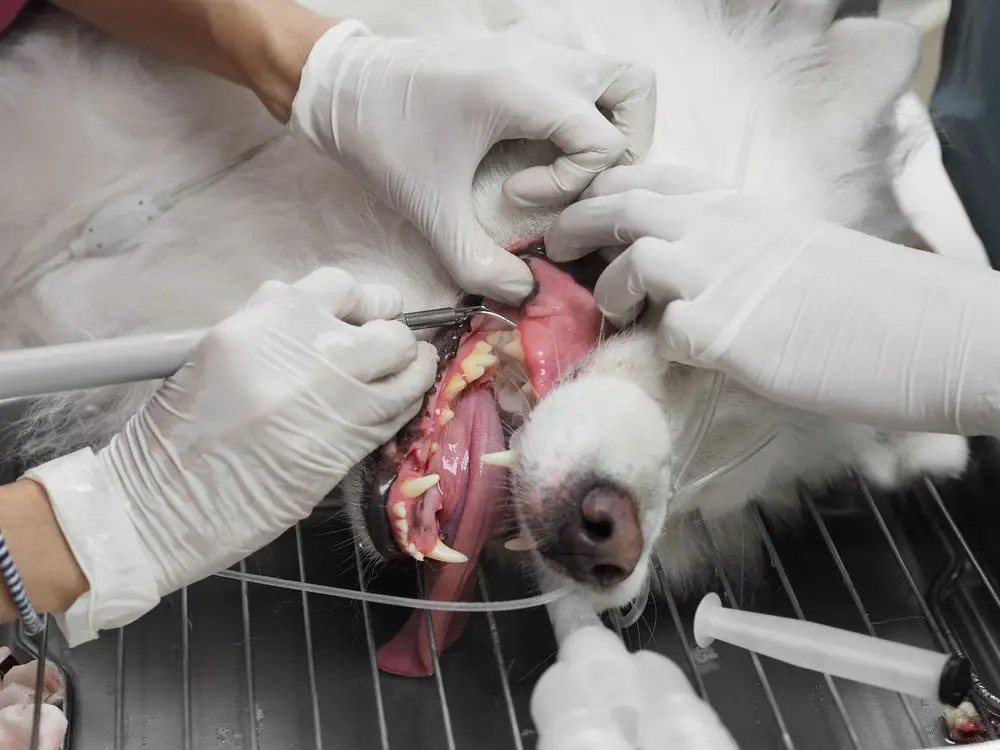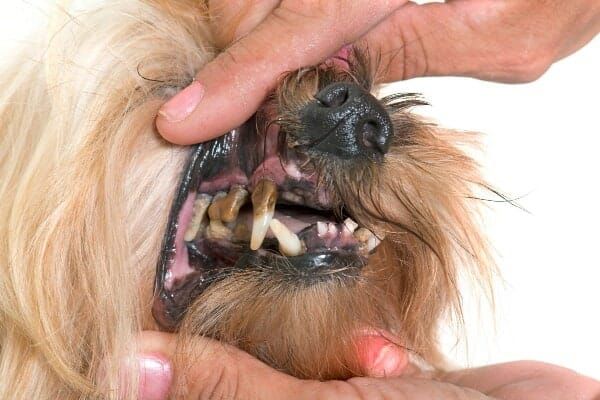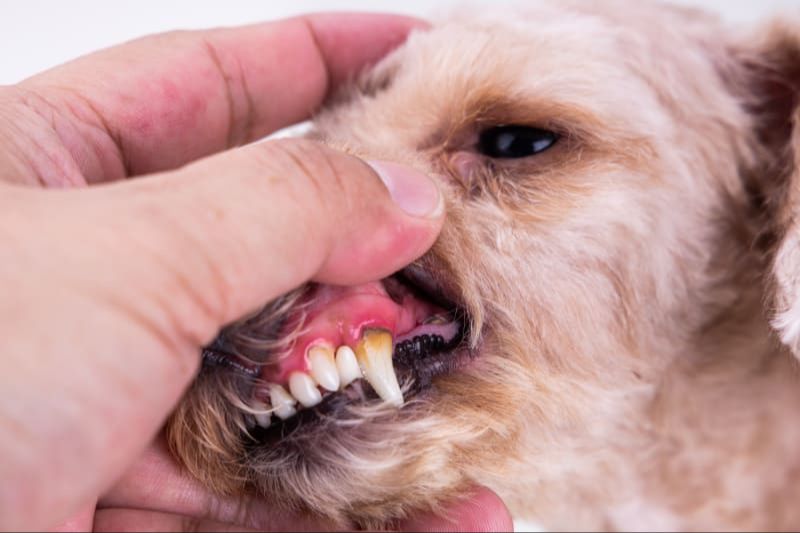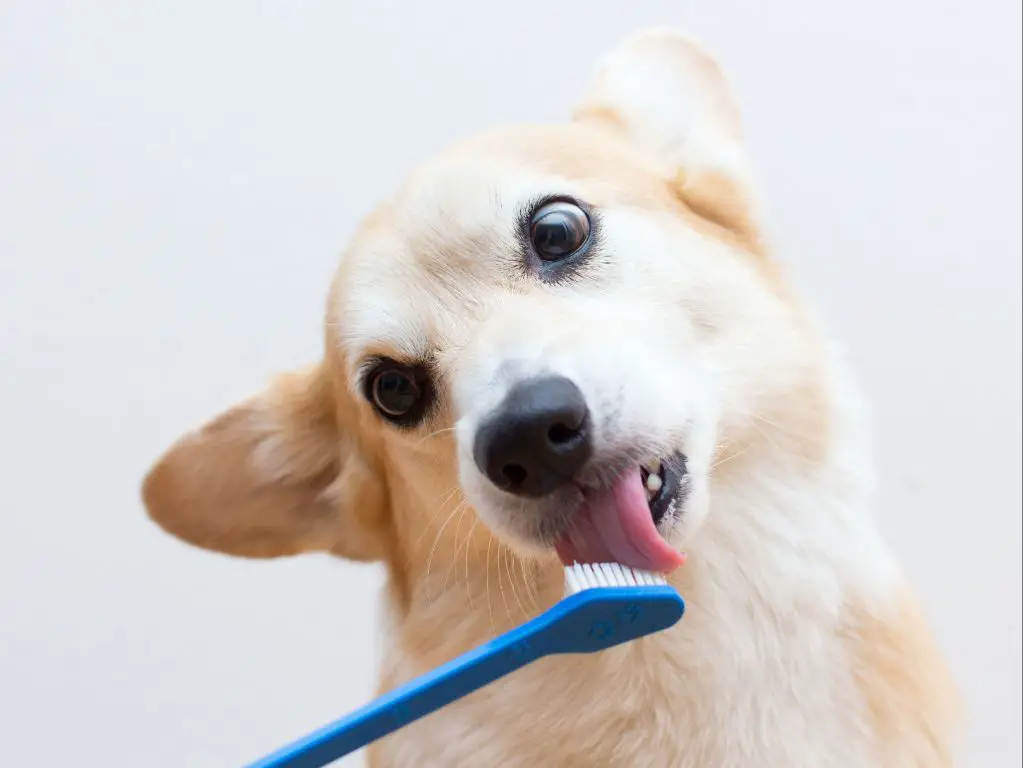Introduction
A dog’s teeth play an important role in its overall health and life expectancy. Proper dental care can add years to a dog’s life, while dental disease left untreated can shorten it. Dogs use their teeth for eating, playing, grooming, and defending themselves. By keeping your dog’s teeth and gums healthy, you enable it to get the most out of its meals, avoid pain and discomfort from dental problems, and live a longer and happier life. This article explores how your dog’s teeth impact its life expectancy and what you can do to promote good oral health.
Average Dog Life Expectancy
The average lifespan for dogs varies greatly depending on breed and size. Smaller dogs tend to live longer than larger dogs. The average lifespan for small breed dogs is 13-16 years. Medium breed dogs tend to live 10-13 years on average, while larger breeds have an average lifespan of 8-10 years. Giant breeds typically live the shortest amount of time at just 5-8 years on average.
Mixed breed dogs, or mutts, generally fall somewhere in the middle with an average lifespan of 10-14 years. Factors like nutrition, exercise, environment, and veterinary care all impact lifespan as well.
Importance of Teeth
Teeth play a critical role in a dog’s ability to eat properly and obtain full nutrition from their diet. Dogs use their teeth to bite, chew, and break down food. Without healthy teeth, dogs cannot adequately process and digest various foods that are important for their nutritional needs.
Canine teeth are designed for tearing and grasping meat, while premolars and molars are made for crushing and grinding. Properly functioning teeth allow dogs to get the most out of the proteins, fats, carbohydrates, vitamins, and minerals in their food. This nutrient-rich diet gives dogs the energy and building blocks they need for good health.
When dental disease sets in, dogs often have painful mouths that make chewing difficult. Missing or damaged teeth also reduce their mechanical ability to break down food. This limits the nutritional value dogs can derive from meals, depriving them of essential nutrients. Poor oral health and dental problems can therefore negatively impact a dog’s digestion, energy levels, weight, skin and coat health, immune function, and more.
By maintaining good dental hygiene and treating any underlying issues, owners can ensure their dogs’ teeth remain functional. This allows dogs to properly eat and metabolize all components of their food, supporting optimal health and wellbeing.

Dental Disease
Dental disease is very common in dogs and can have significant impacts on their overall health and longevity. The most prevalent dental disease in dogs is periodontal disease, which is inflammation and infection of the tissues surrounding the teeth. Over time, periodontal disease can damage the gums, jawbone, and ligaments that support the teeth.
Periodontal disease usually starts with plaque buildup on the teeth. Within days, this plaque hardens into tartar that provides a breeding ground for harmful bacteria. These bacteria cause infection and inflammation of the gums, clinically known as gingivitis. As gingivitis persists untreated, it can progress to periodontitis where the infection spreads deeper below the gumline. This causes destruction of the periodontal tissues and jawbone that anchor the teeth.
Periodontal disease doesn’t just impact the mouth. The bacteria and inflammation can spread to other parts of the body through the bloodstream. This puts dogs at risk for damage to major organs like the heart, kidneys and liver. It also increases inflammation throughout the body which is linked to many other health problems. Given the systemic impacts, dental health is incredibly important for dogs’ overall wellbeing and longevity.
Missing Teeth
Missing teeth can lead to a number of health problems for dogs. When dogs lose teeth, they can have difficulty eating and chewing their food properly. This may result in the dog not getting adequate nutrition, which can negatively impact their health in many ways.
Without teeth to help break down food, dogs may swallow larger chunks that can cause choking hazards. Missing teeth also make it harder for dogs to chew their food thoroughly. As a result, they may not digest their food properly, leading to gastrointestinal issues like vomiting, diarrhea, and constipation.
In addition, when dogs lose multiple teeth, their jawbones start to deteriorate over time without the stimulation from the teeth’s roots. This can alter the shape of their face and alignment of their jaws. It can also be painful as the bones weaken.
Malnutrition from poor chewing and digestion can cause dogs to lose weight, have less energy, and become more susceptible to illness. Lack of proper nutrition affects their skin, coat, joints, organs, and overall vitality. Senior dogs with missing teeth especially need adequate nutrition to maintain health.

For all these reasons, it’s critical to care for dogs’ dental health throughout their lives and promptly treat any lost teeth to avoid negative impacts to their wellbeing.
Oral Health Routine
A daily oral health routine is crucial for maintaining your dog’s dental health. This should include brushing their teeth, providing dental chews, and getting professional cleanings.
Brushing your dog’s teeth daily is the most effective way to remove plaque and tartar. Use a soft-bristled toothbrush and dog-safe toothpaste to gently brush their teeth in a circular motion. Focus on the outer surfaces of the teeth and aim to brush for 2-3 minutes daily.
Dental chews help scrape away plaque and tartar between brushings. Look for veterinarian-approved chews made specifically for dental health. Avoid chews that are too hard, which can fracture teeth. Offer chews for 10-15 minutes 1-2 times per day.
Professional dental cleanings by your veterinarian are needed to fully remove plaque and tartar down below the gumline. Cleanings are typically recommended once a year, but your vet may suggest more or less frequent cleanings depending on your dog’s needs.
Signs of Dental Problems
There are several clear signs that indicate your dog may have dental problems that require veterinary attention. Being aware of these signs is important for all dog owners so issues can be addressed early before they lead to more severe dental disease.
One of the most obvious signs is bad breath. If your dog’s breath smells unpleasant on a regular basis, this is likely a sign of periodontal disease. Bacteria builds up on the teeth and gums, releasing foul-smelling gases. While a little bad breath is normal in dogs, a persistently strong odor indicates a problem.
Loose or wobbly teeth can also signify dental issues. Periodontal disease damages the tissues holding teeth in place, leading to increased tooth mobility. This is especially evident in senior dogs as their teeth loosen with age. Any abnormally loose teeth should be evaluated by your veterinarian.
Inflamed red gums are another warning sign not to ignore. Normal gums should be bubble gum pink. If they look puffy, swollen or bleeding, it indicates inflammation and infection. Gingivitis and advanced periodontal disease often lead to inflamed gums which can be very painful.

Being attentive to these common signs of dental problems will allow you to get your dog necessary treatment right away, improving their oral health and quality of life.
Treating Dental Issues
Dental issues in dogs often require medical intervention. Some common treatments for dental problems in dogs include:
Extractions – Extracting teeth is a common procedure vets perform on dogs with advanced periodontal disease, fractured teeth, malocclusions, and decay. The affected teeth are surgically removed while the dog is under anesthesia. Extractions can provide significant relief from pain and infections.
Root canals – Root canals are performed on dogs to treat infections deep inside the tooth. The infected pulp tissue is removed and the interior canal of the tooth is disinfected and filled. Root canals allow infected teeth to be saved rather than extracted.
Other dental treatments can include crown amputation, vital pulp therapy, restoration with fillings, orthodontics, and fluoride treatments. Consulting with a veterinarian is important, as they will determine the best treatment options for the dog based on oral exams and dental x-rays.
With timely treatment, dogs can recover well from dental issues. However, prevention through regular brushing and professional cleanings is key to maintaining good oral health.
Prevention
One of the best ways to ensure your dog maintains good oral health is to practice preventive care from the time they are a puppy. Puppies have 28 baby teeth that begin to erupt at around 3-4 weeks of age. It’s important to start getting them used to having their teeth and mouth handled early on. Gently rub their gums with a soft cloth or finger to acclimate them to being touched around their mouth.
As soon as your puppy’s teeth begin coming in, you can introduce toothbrushing. Use a soft-bristled brush and dog-safe toothpaste. Brush in gentle circles and make sure to reach the back teeth. Build up brushing from a few times a week to daily. Offer praise and treats to make it a positive experience.
Schedule your puppy’s first veterinary dental exam between 4-6 months of age. The vet will check for any potential problems with incoming permanent teeth and let you know if professional cleaning is needed. Going forward, aim for professional cleanings under anesthesia at least once a year.
You can also provide safe chew toys and treats to help keep puppy teeth clean. Look for products with the VOHC seal from the Veterinary Oral Health Council. Avoid hard chew items that could damage teeth.
Establishing excellent at-home and professional dental care while your dog is young will pay off in the long run with healthier teeth and gums.

The Impact of Teeth
Teeth play a vital role in a dog’s life expectancy and overall health. Poor dental health can decrease lifespan in several ways:
- Dental disease is painful, decreases quality of life, and can lead to potentially fatal infections if left untreated.
- Missing or damaged teeth make it difficult for dogs to eat properly, resulting in malnutrition that weakens the immune system and body’s ability to fight disease.
- Bacteria from gum disease can spread through the bloodstream and damage internal organs like the heart, kidneys and liver.
- Dental issues may indicate an underlying health problem, especially in younger dogs, that needs veterinary attention.
- Oral tumors and other dental problems may require life-threatening surgery if not addressed early.
- Routine dental cleanings and exams catch developing issues early, when they are most treatable.
Overall, by keeping your dog’s teeth cleaned and cared for with regular brushing and professional veterinary dental care as needed, you can help extend your dog’s lifespan and allow them to enjoy many healthy years.